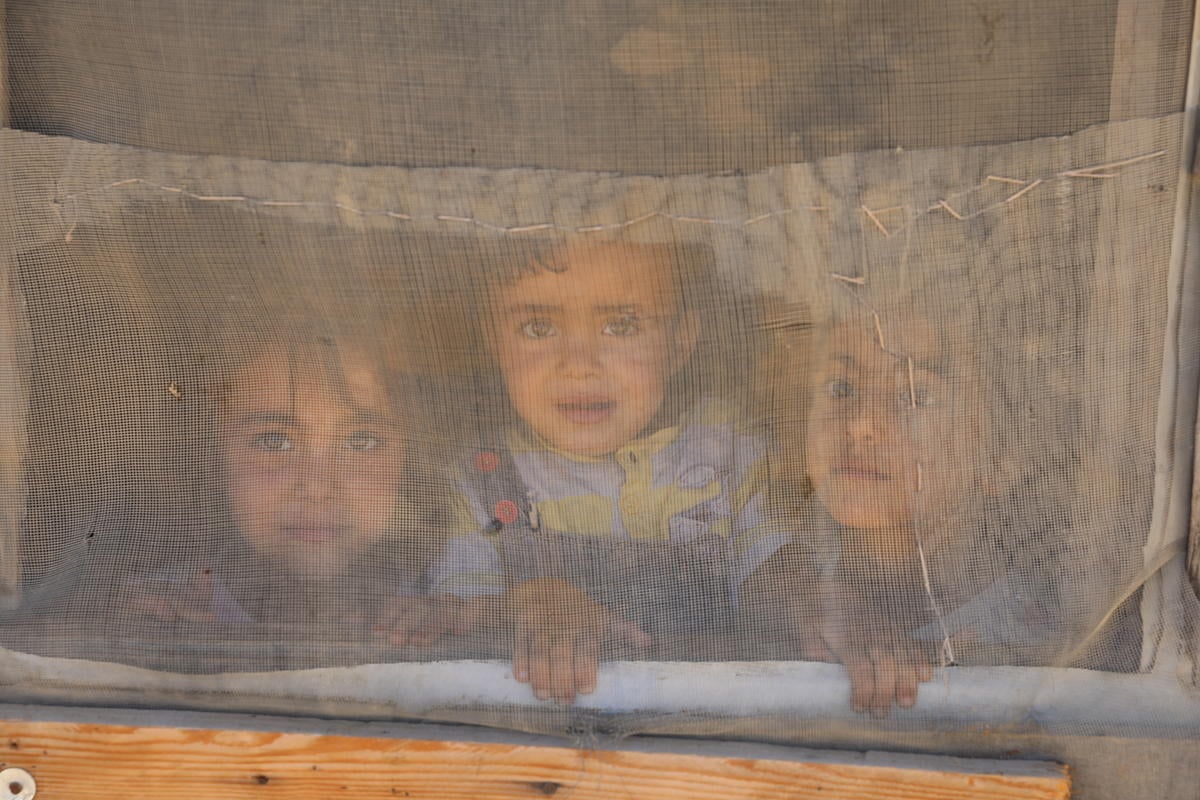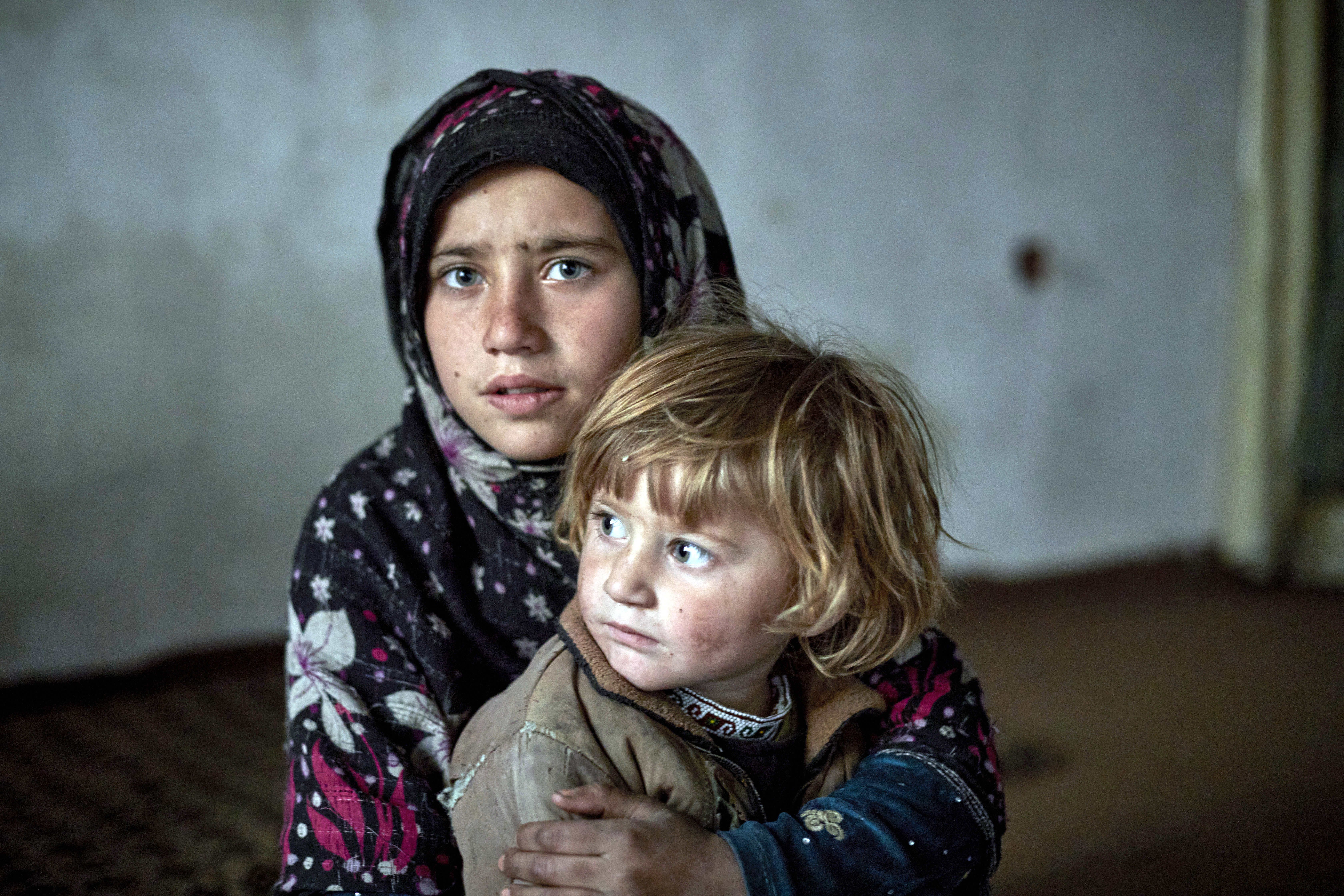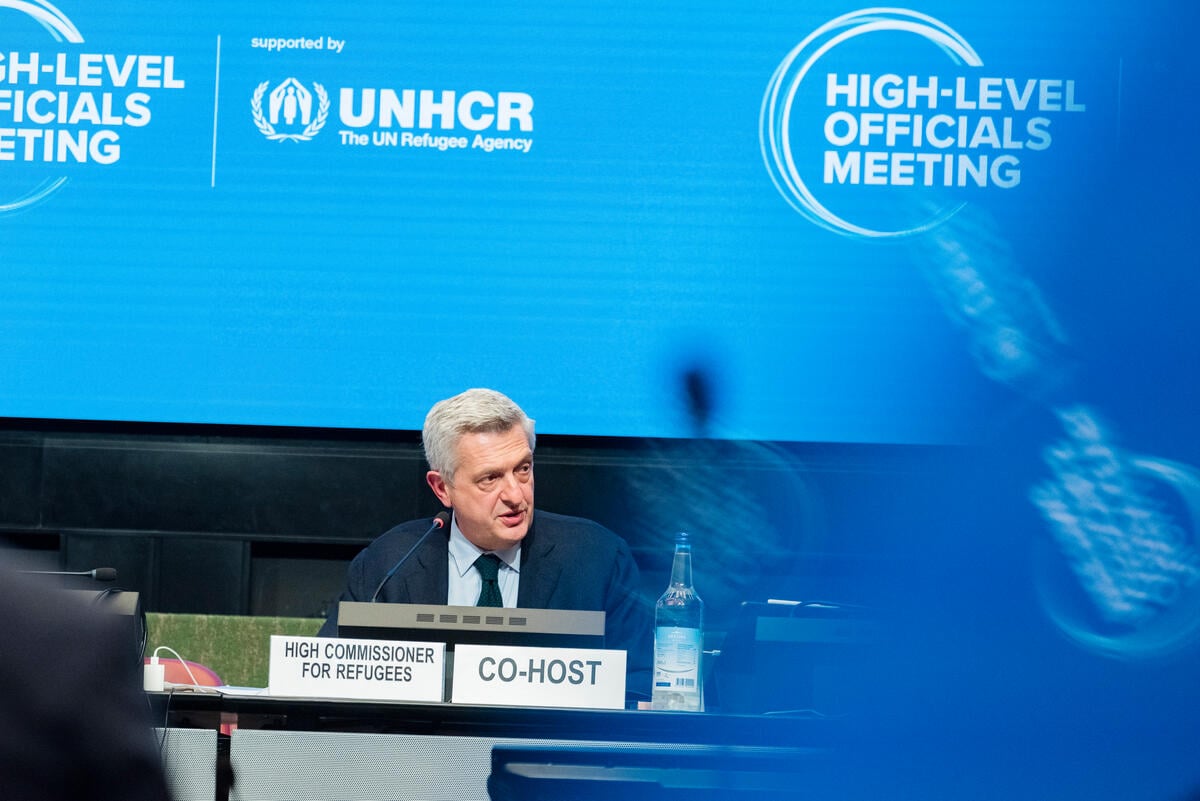First of some 8,500 Burundians due for resettlement in US leave Tanzania
First of some 8,500 Burundians due for resettlement in US leave Tanzania

KIBONDO, Tanzania, May 18 (UNHCR) - The resettlement in the United States of some 8,500 Burundian refugees who fled their country in 1972 got under way on Friday when a first group of 88 people flew out of Kibondo Camp in western Tanzania.
The refugees were due to travel to cities in the United States after a stopover in the Kenyan capital, Nairobi, where they were to attend orientation courses to help ease their arrival and integration in the US.
Some 3,000 of the "1972 Burundian refugees" - about 35 percent of the number accepted for resettlement - are expected to leave Kibondo en route for cities such as Atlanta and Phoenix over the next 15 weeks.
The whole process is expected to be completed by the end of this year. It is being organized by the US government, the International Organization for Migration (IOM) and UNHCR.
Young refugees played traditional Burundian drums and danced and shouted as the departing group - including a double amputee - boarded the plane at Kibondo's airstrip. Hundreds of local villagers looked on with curiosity.
"We are happy because, in the United States, we will not be refugees anymore. Sometimes, it felt like an insult to be called a refugee," said Emmanuel Kabura, who was leaving with his wife Janvière and their son Ezekiel.
Kabura has never been to Burundi and has no relatives there. His parents fled in 1972 to the DRC and later moved to Rwanda - where Kabura was born in 1981 - before eventually reaching safety in Tanzania in 1994. He speaks English well and is confident of making a go of things in the United States. "When we have settled in the US, I would like to go to university and study sociology," he said.
Evode Gahungu fled Burundi aged one year and his mother, father and two siblings were all killed when they returned to the country in the 1990s. "I have always been in exile. I will try not to forget my roots, but I hope that the USA can become my new motherland," said the husband and father of four.
The "1972 Burundians" represent one of the world's most protracted refugee problems and resettlement is the only viable durable solution for most of them. Hundreds of thousands of Burundians fled to neighbouring countries that year to escape ethnic violence which killed an estimated 200,000 people. Children of these refugees born in exile were also being considered for US resettlement.
Some of the refugees have been displaced several times in the Great Lakes region. In 1972, thousands of the Burundians fled to the Democratic Republic of the Congo (DRC) and Rwanda. But they had to move to Tanzania when conflict erupted in these countries in the 1990s. At the same time, some Burundians returned home after several years of exile but had to seek sanctuary in neighbouring countries once more when a new wave of violence swept their country.
While repatriation of Burundian refugees remains a priority, UNHCR believes that successful repatriation and reintegration of this particular group is not possible. After nearly 35 years in exile, they would face complex and unresolved land issues. Moreover, some refugees believe they are viewed as outsiders and would never be able to fully integrate in Burundi. Those born in exile identify closely with their host country, Tanzania, but it cannot offer them local integration.
Tanzania still hosts some 276,000 refugees, mainly from Burundi and the DRC.
By Ivo Brandau in Kibondo
and Roslyn Paul in Dar es Salaam, Tanzania









